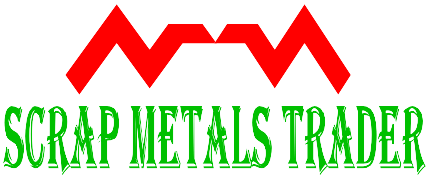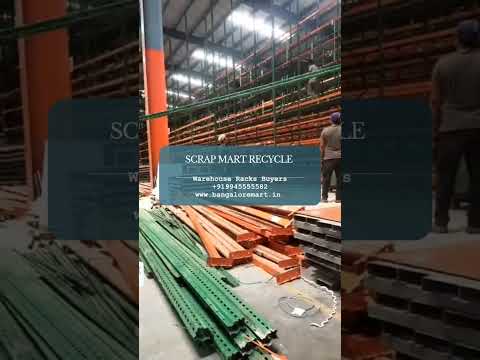Understanding the Dynamics of Industrial Scrap Buyers and Sellers
The industrial scrap market plays an important role within the manufacturing and recycling industries. Both buyers and sellers are important to this ecosystem, contributing to sustainable practices and useful resource administration.
Who are Industrial Scrap Buyers?
Industrial scrap patrons are entities or individuals that purchase scrap material from businesses involved in manufacturing processes. Their primary goal is to recycle these materials for reuse in numerous industries. Key gamers include:
- Recycling companies
- Metal processors
- Manufacturers in search of raw materials
- Waste management firms
Who are Industrial Scrap Sellers?
On the opposite hand, industrial scrap sellers are usually companies or organizations that generate scrap throughout their manufacturing processes. They sell extra or waste supplies to consumers, together with:
- Manufacturing plants
- Construction companies
- Automotive industries
- Demolition contractors
The Benefits of Engaging with Industrial Scrap Buyers and Sellers
Interacting within the industrial scrap marketplace provides a quantity of advantages:
- Cost Savings: Selling scrap may help companies offset production costs.
- Environmental Responsibility: Recycling reduces waste and promotes sustainability.
- Resource Recovery: Valuable supplies can be recovered and reused, minimizing the necessity for brand new sources.
- Regulatory Compliance: Proper disposal of industrial waste helps in assembly environmental rules.
FAQs About Industrial Scrap Buyers and Sellers
1. What types of supplies do industrial scrap patrons accept?
Industrial scrap patrons typically accept metals (like metal, copper, and aluminum), plastics, wooden, and paper products, relying on their processing capabilities.
2. How do I discover reliable industrial scrap buyers?
Research native recycling centers, attend industry commerce exhibits, and network aluminum ubc scrap price via skilled associations to identify trustworthy scrap buyers.
3. What components affect scrap metallic pricing?
Scrap costs fluctuate based mostly on several elements, including:
- Market demand
- Material kind and quality
- Global economic conditions
- Transportation costs
4. Is there a minimal quantity required for selling scrap?
Many consumers have minimal weight requirements, so it’s advisable to examine with potential patrons about their specific policies.
5. Can small businesses engage in the scrap market?
Yes, small companies can take part by promoting scrap generated from their operations, thus benefiting from extra income streams.
In conclusion, understanding the roles of industrial scrap patrons and sellers can enhance your business’s efficiency whereas supporting environmental sustainability. Engaging on this market not only aids in material recovery but also fosters a greener future.
Maximizing Value in the Industrial Scrap Market
Maximizing Value within the Industrial Scrap Market
The industrial scrap market plays a crucial position within the recycling and sustainability efforts across numerous industries. Understanding how to maximize worth as an industrial scrap purchaser or seller can result in important financial positive aspects whereas contributing positively to environmental conservation.
Understanding Industrial Scrap
Industrial scrap consists of leftover supplies generated during manufacturing processes. This can embody metals, plastics, paper, and other supplies that might be recycled and reused. The value of these supplies fluctuates based on market demand, sort, high quality, and quantity.
Key Strategies for Sellers
- Quality Control: Ensure that the scrap is clear and sorted by material kind. Higher high quality materials yield better prices.
- Market Research: Stay updated on market tendencies and pricing to identify the best occasions to sell.
- Work with Reputable Buyers: Establish relationships with trustworthy industrial scrap consumers who supply truthful costs and dependable service.
- Optimize Logistics: Efficient transportation can scale back costs, growing overall revenue margins from scrap gross sales.
- Negotiate Wisely: Always negotiate phrases and prices, leveraging your knowledge of current market situations to secure higher deals.
Key Strategies for Buyers
- Build Relationships: Cultivate robust connections with scrap suppliers to ensure a gradual flow of supplies at aggressive costs.
- Evaluate Quality: Always assess the standard aluminum ingot for sale of scrap before purchase to avoid overpaying for subpar supplies.
- Diversify Sources: Expand your supplier base to mitigate dangers and take advantage of value fluctuations.
- Invest in Processing: Consider investing in processing equipment to enhance the standard and marketability of the scrap you purchase.
- Stay Informed: Keep abreast of industry changes, together with regulations and technological advancements affecting scrap worth.
Frequently Asked Questions
What types of materials are thought-about industrial scrap?
Common supplies embody metals (steel, aluminum, copper), plastics, paper, and wood. Each materials sort has its personal market value and demand.
How can I find industrial scrap buyers and sellers?
Utilize online platforms, industry trade exhibits, and networking occasions to connect with potential consumers and sellers. Local recycling centers can even present contacts.
What elements affect the worth of industrial scrap?
Prices are influenced by provide and demand, international market tendencies, material high quality, and power costs associated with recycling processes.
Is it value investing in processing equipment for scrap?
Yes, investing in processing tools can enhance the quality of scrap supplies, making them more interesting to consumers and doubtlessly increasing income.
Conclusion
Whether you’re an industrial scrap buyer or seller, maximizing worth requires strategic planning, market awareness, and building strong relationships within the industry. By implementing the strategies outlined above, each events can optimize their operations and achieve greater profitability within the ever-evolving scrap market.
Maximizing Value in Industrial Scrap Transactions
Understanding the Industrial Scrap Market
The industrial scrap market plays a vital function in the recycling industry, contributing to sustainability and cost-effectiveness. Industrial scrap patrons and sellers have interaction in transactions that can significantly impression their bottom lines. To maximize value in these transactions, each events should perceive key components that affect pricing, demand, and high quality.
Factors Influencing Scrap Value
Several parts decide the value of business scrap. These include:
- Material Type: Different supplies, similar to metals, plastics, and paper, have various market values. Metals like copper and aluminum usually command greater prices due to their recyclability and demand in manufacturing.
- Market Demand: The world demand for specific materials fluctuates based mostly on economic conditions. Industrial scrap patrons and sellers need to stay knowledgeable about market tendencies to barter higher costs.
- Quality of Scrap: High-quality scrap without contaminants will fetch a better worth. Sellers ought to be sure that their scrap is clean and sorted, while patrons ought to assess high quality earlier than buy.
Building Relationships Between Buyers and Sellers
Establishing sturdy relationships between industrial scrap consumers and sellers is crucial for maximizing value. Trust and communication can result in better offers and long-term partnerships. Consider the following strategies:
- Networking: Attend industry occasions and trade exhibits to attach with potential companions. Building a community may help both consumers and sellers discover dependable sources and customers.
- Transparent Communication: Maintain open traces of communication regarding pricing, quality, and expectations. Clear agreements can prevent misunderstandings and foster goodwill.
- Regular Transactions: Establishing routine transactions can lead to reductions or better pricing structures. Frequent dealings construct familiarity and trust.
Negotiation Techniques
Effective negotiation is vital in industrial scrap transactions. Here are some techniques for both consumers and sellers to contemplate:
- Research: Prior to negotiations, both parties ought to analysis present market costs and developments. Being well-informed strengthens bargaining energy.
- Set Clear Goals: Know your minimal acceptable worth (for sellers) or most price range (for buyers) before coming into negotiations. This helps in staying focused and avoiding rash selections.
- Listen Actively: Understanding the opposite party’s wants and concerns can lead to mutually helpful solutions. Active listening fosters collaboration.
Utilizing Technology
Technology performs an increasingly important role in optimizing industrial scrap transactions. Digital platforms can facilitate higher connections between buyers and sellers. Some benefits include:
- Online Marketplaces: Websites and apps devoted to industrial scrap trading allow customers to listing their supplies, making it simpler for consumers to seek out what they want.
- Real-Time Pricing: Access to up-to-date pricing data enables each events to make knowledgeable choices.
- Data Analytics: Analyzing transaction data can present insights into shopping for patterns and preferences, permitting for more tailor-made presents.
Conclusion
Maximizing worth in industrial scrap transactions requires a strategic strategy from each industrial scrap patrons and sellers. By understanding market dynamics, constructing robust relationships, using efficient negotiation methods, and leveraging know-how, each events can improve their profitability and contribute to a more sustainable future.

